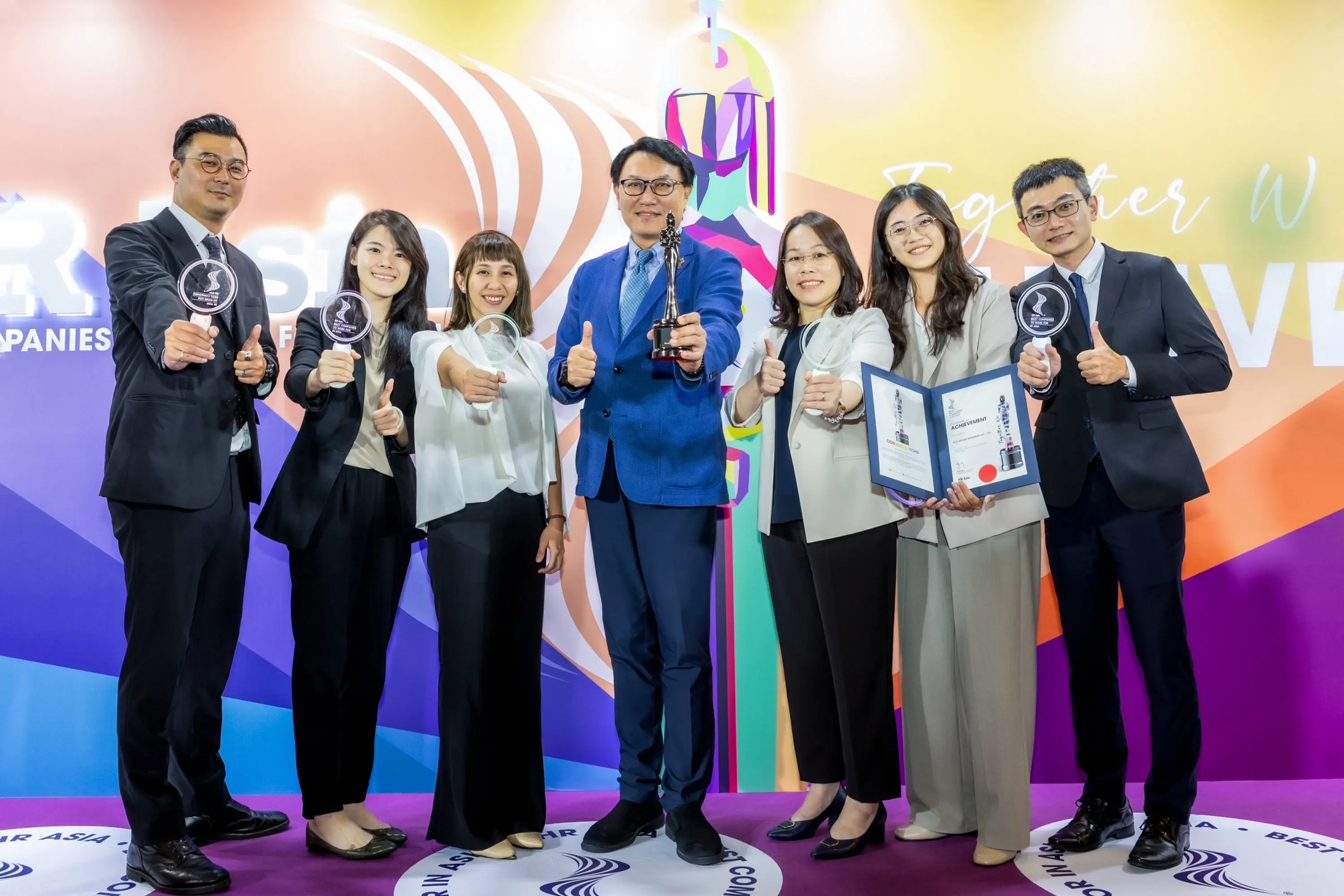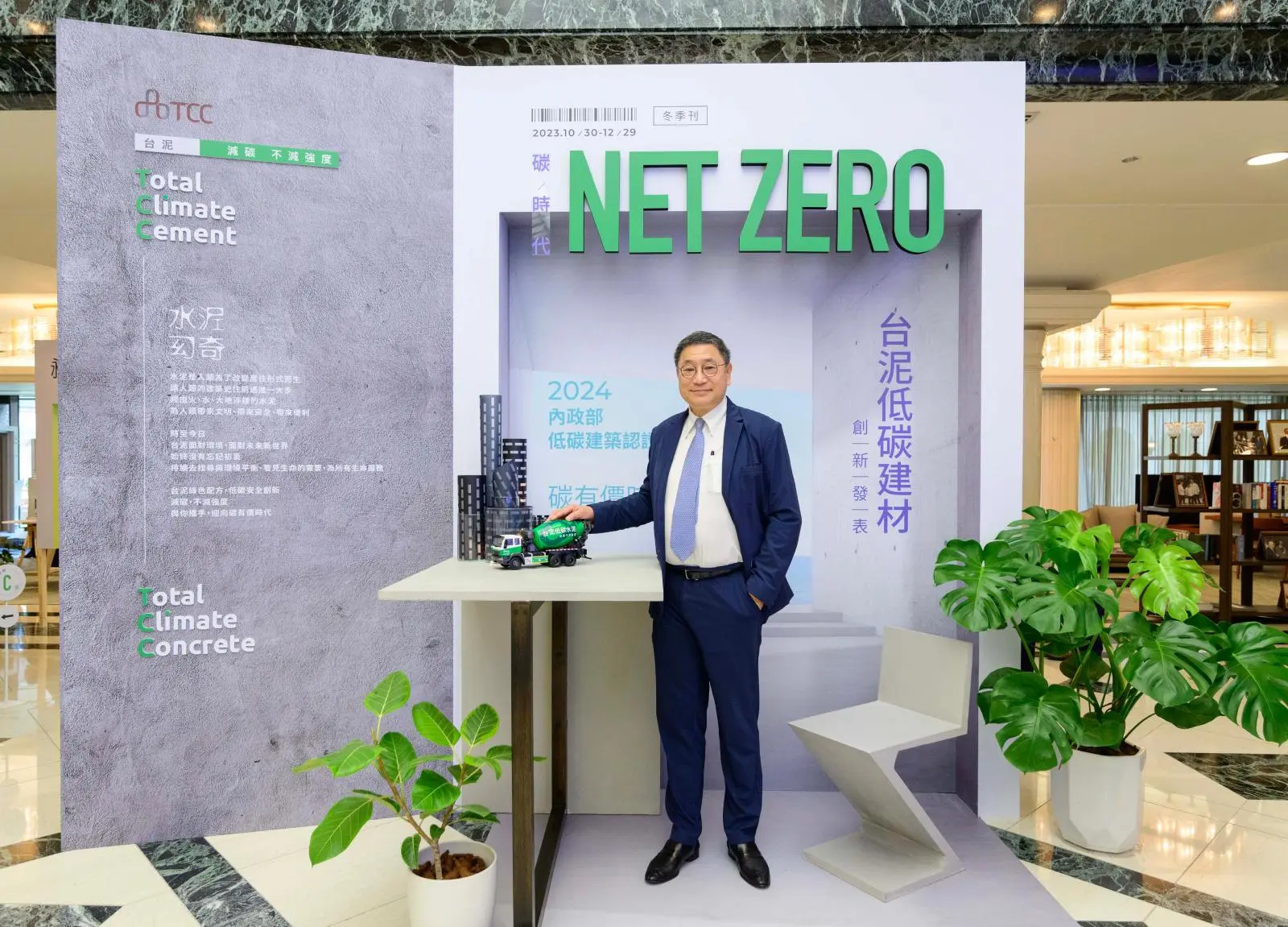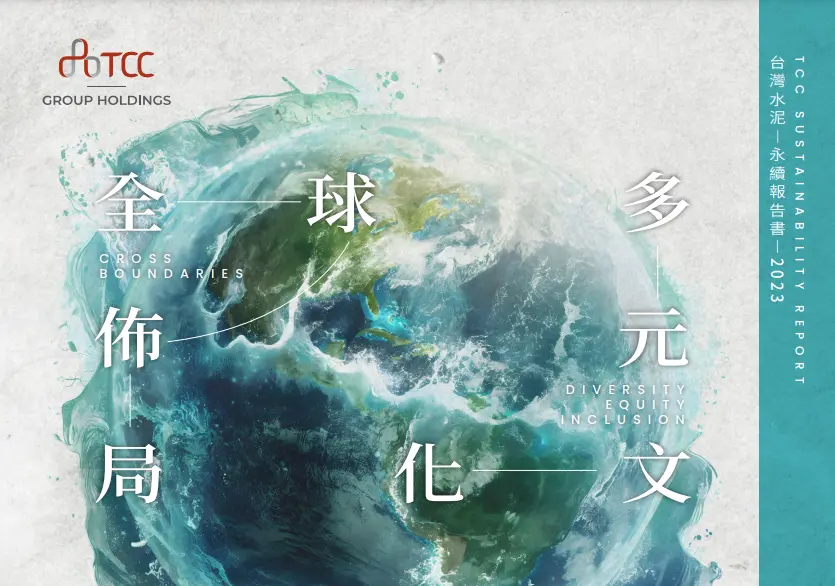TCC Group Holdings (TCC) Response to Russian Coal
Response to the visit by ERF on June 21, and the report released by CREA, ERF and Ecodefense on July 8, 2024.
TCC Group Holdings (TCC) is committed to sustainability and dedicated to Taiwan's energy transition. In addition to our Hoping Power Plant playing a crucial role in ensuring stable power supply during the energy transition phase, TCC Group Holdings (TCC) is currently the only group in Taiwan engaged in the diversified development of green energy, including solar power, wind power, fishery and electricity symbiosis, geothermal energy, and ocean thermal energy conversion.
Regarding the visit by the Environmental Rights Foundation (ERF) on June 21, and the report released by the Centre for Research on Energy and Clean Air (CREA), ERF and Ecodefense on July 8 to address concerns about Hoping Power Plant's use of Russian coal, our statement is as follow:
International conflicts impacting global carbon reduction efforts have also affected Taiwan's geopolitical risks and energy security.
Limiting warming to 1.5 degrees is a global consensus. However, since 2022, consecutive conflicts such as the Russia-Ukraine war and conflicts in the Middle East have not only resulted in severe casualties but also escalated carbon emissions due to extensive use of weapons and fuels. This has exacerbated climate change and even led to energy crises in Europe at one point. These developments have also worsened the geopolitical tensions between the United States and Mainland China, consequently increasing Taiwan's geopolitical risks.
Taiwan currently stands as one of the most stringent countries globally in its stance against nuclear energy. The government's phased approach, known as "phasing out nuclear energy and delaying the phase-out of coal-fired power generation," involves the decommissioning of Taiwan's last nuclear power plant scheduled for July this year.
Concurrently, Taiwan Power Company (Taipower) has agreed to extend the operation of the Mailiao coal-fired power plant. This decision is primarily driven by Taiwan's small size and limited natural resources. As of now, renewable energy accounts for only 9.5% of Taiwan's total electricity generation capacity, leaving traditional coal-fired power generation still occupying 42% of Taiwan's power structure. Moreover, 97% of Taiwan's energy sources such as oil, coal, and natural gas rely on maritime imports. As Taiwan endeavors to transition its energy mix to address climate change, energy security remains a significant risk. In June, the American magazine "Foreign Affairs" explored Taiwan's vulnerability to maritime blockades, highlighting issues concerning the fragility of Taiwan's electricity system and energy security.
The Hoping Power Plant is the sole provider of stable electricity for the Northeastern Taiwan Power Grid. Its environmental impact assessment (EIA) standards for ash are the strictest in Taiwan, restricting procurement options.
Hoping Power Plant, under TCC Group Holdings (TCC), despite the geographical challenges in Taiwan's eastern region that prevent it from converting coal to gas like western coal-fired power plants, is not included in the government's decommissioning plans as outlined in the Ministry of Economic Affairs' 2023-2033 Taiwan Future Power Supply Plan. It is anticipated that the Hoping Power Plant will remain a necessary electricity source for the northeastern Taiwan power grid according to the government's energy blueprint, fulfilling its social responsibility of supplying 95% of Yilan's electricity and 20% of New Taipei City's electricity needs.
Since its commissioning in 2002, the Hoping Power Plant has implemented a circular economy design where all coal ash produced is transported through sealed conveyance corridors to the nearby TCC Hoping Cement Plant to be used as alternative raw materials. It is globally unique in that it has no ash ponds for fly ash storage nor does it transport fly ash externally. However, despite these measures, the Hoping Power Plant adheres to the strictest environmental impact assessment (EIA) standards among Taiwan's traditional coal-fired power plants. Its annual average ash content standard is 12%, compared to 20% for other coal-fired power plants in western Taiwan.
The Hoping Power Plant commits to maintaining an annual average ash content of no more than 12% and a sulfur content of no more than 1% as part of its environmental impact assessment (EIA) requirements, while also respecting the residential and environmental rights of surrounding communities. Simultaneously, it ensures stable electricity supply and reduces carbon emissions from raw material transportation. To achieve these goals, the plant has established sustainable procurement criteria, including:
【Maintaining safety stocks with dispersed coal sources and short voyages】、【Using multiple mix ratios to meet the low ash and low sulfur content required by EIA】、【Implementing sustainable practices across all aspects of operations】、【Reducing supply chain transportation carbon emissions】、【Achieving economic benefits】。
Due to Indonesia and Australia’s delays in shipments and the ongoing conflict risks in Russia, diversifying coal procurement helps mitigate risks.
The Hoping Power Plant follows sustainable procurement criteria by primarily using a mix of coal from Australia, Indonesia, and Russia:
Australian coal: High ash, high sulfur, transportation distance of 15 days.
Indonesian coal: Low ash, high sulfur, higher volatility, prone to spontaneous combustion and difficult to store, transportation distance of 7 days. Due to the use of horizontal grinding equipment of Hoping Plant, the amount of coal temporarily stored in the grinding mill is larger than that of other power plants, which enhances Hoping Power Plant's load balancing capability. However, Indonesian coal, which is prone to spontaneous combustion, poses a higher risk of explosion when fed into the grinding equipment.
Russian coal: Moderate ash, low sulfur, and similar high calorific value as Australian coal, transportation distance of 6 days.
Hoping Power Plant adjusts its coal blending ratios based on market supply and demand dynamics each quarter, ensuring compliance with environmental assessment standards regarding ash content and sulfur content. Every batch of imported coal requires submission of third-party inspection reports. However, unlike Taipower, which manages multiple power plants and has the flexibility to centrally dispatch coal from various countries, Hoping Power Plant lacks such capability. Russian coal is the closest low-ash coal source to Taiwan after Mainland China in terms of shipping distance. After Russia-Ukraine war, the Hoping Power Plant diversifies its coal procurement risks by purchasing Russian coal only on a spot basis. In May 2022, Hoping Power Plant has requested to Taiwan’s Environmental Protection Department to consider raising the annual average ash limit to increase procurement flexibility. However, the Environmental Protection Department deemed it necessary to further examine the environmental impacts.
During the same period, one of Hoping Power Plant's main coal importing countries, Indonesia, experienced four instances of force majeure delay events from 2021 to 2022, including Indonesian government bans on coal exports and customs system failures causing port congestion. Additionally, Australian coal deliveries during January to March each year were unstable due to the rainy season, and delays in July 2022 were caused by strikes at Australian railway companies affecting Hoping Power Plant's delivery schedules.
Despite the volatile international situation, Hoping Power Plant continues to seek sustainable solutions amidst numerous challenges. On one hand, it is developing new coal sources in South Africa, while on the other, it is experimenting with reducing the use of Russian coal after ensuring a safe, low-ash blend. Transporting coal from South Africa takes a lengthy 27-day journey, posing challenges for Hoping Power Plant's inventory management and Taiwan's energy security, as well as raising concerns about high carbon emissions associated with transportation.
Due to the volatile international situation, Hoping Power Plant plans to reduce its procurement of Russian coal to less than 20% of its total coal purchases for the year 2024, compared to one-third in 2022.
The EU has imposed a coal ban, yet it continues to import fossil fuels from Russia. Taiwan's energy security and source flexibility are low.
TCC Group Holdings (TCC) deeply understands that today's global environmental issues are no longer simply about the relationship with nature but are highly complex and often intertwined with conflicts of interest between nations. According to data from the Finnish Energy and Clean Air Research Center (CREA): Europe is rich in natural resources, leading in global renewable energy deployment, closing numerous coal-fired power plants, and having relatively low demand for coal and EU has imposed restrictions on Russian coal imports since the Russia-Ukraine war started. Although the trend has been declining, EU continues to import fossil fuels worth a cumulative 194.8 billion euros from Russia, highlighting that reducing dependence on Russia also requires a transition period. Lacking natural resources, Asian island nations face another challenging predicament. According to CREA, among the top ten global importers of Russian coal from 2023 to date, besides countries like Mainland China that are themselves producers of oil or coal, nations such as South Korea, Taiwan, Malaysia, Japan, and Singapore rely on imported energy. Taiwan, for instance, currently restricts exports to Russia for 77 items including high-tech goods and dual-use military items, but has not imposed controls on imports of coal, oil, natural gas, and other fossil fuels from Russia.
TCC Group Holdings (TCC) aligns with the EU CSDDD to conduct human rights and environmental due diligence investigations intensifying focus on the supply chain.
Corporate must find a balance among environmental, human rights, social responsibilities, shareholder interests, and various stakeholders' rights. TCC Group Holdings (TCC) deeply engages in the energy transition process and understands the importance of a just transition. Just transition involves more than simple arithmetic and adjustments to coal sources among countries; it also means not neglecting any stakeholders affected. Therefore, we never give up on any possibility of communicate with society and the international community. In the past, Hoping Power Plant procured Russian coal as part of its low-ash blending strategy, focusing on meeting environmental assessment standards, safeguarding the environmental rights of surrounding communities, and ensuring stable power supply in line with national energy security policies. TCC Group Holdings (TCC) prioritizes the rights of Taiwanese people who rely on Hoping Power Plant for electricity, as well as those of local residents and plant employees.
We appreciate the visit of Vladimir Slivyak, co-founder of the international environmental organization Eco-defense and a long-time advocate against nuclear power and coal. Mr. Slivyak provided firsthand observations on human rights and environmental impacts in Russian coal mining areas. Mr. Slivyak’s insights from upstream supply chain human rights issues offer valuable perspectives for TCC Group Holdings (TCC) to contemplate deeply.
Since May this year, TCC Group Holdings (TCC) has proactively aligned with the European Union's newly adopted Corporate Sustainability Due Diligence Directive (CSDDD) and the OECD Guidelines, conducting an internal trial of the " TCC Group Holdings (TCC) Human Rights and Environmental Due Diligence." It is expected that by the end of July, TCC Group Holdings (TCC) will publicly release its first Human Rights and Environmental Due Diligence Risk Matrix. The aim is to start with the company's management systems to prevent potential human rights and environmental impact risks to employees, suppliers, and local communities at the source. The information from Mr. Slivyak can serve as an important reference for the Hoping Power Plant to consider how to refine international supply chain human rights while continuously providing stable power supply and protecting the basic electricity rights of residents in Taiwan's Northeastern power grid.
More Related Information
-
 2024.07.10TCC Wins HR Asia Best Companies to Work for in Asia for the Third Time, Earning High Recognition from Employees for Its Sustainable Workplace
2024.07.10TCC Wins HR Asia Best Companies to Work for in Asia for the Third Time, Earning High Recognition from Employees for Its Sustainable Workplace -
 2024.07.09TCC Group Holdings Co. Ltd. Assigned 'BBB-' Issuer Credit Rating; Outlook Stable from S&P, One of the Big Three Global Credit Rating Agencies
2024.07.09TCC Group Holdings Co. Ltd. Assigned 'BBB-' Issuer Credit Rating; Outlook Stable from S&P, One of the Big Three Global Credit Rating Agencies -
 2024.07.01TCC Group Holdings Releases Latest Sustainability Report Reveals Increase in Sustainable and Green Financing Inflows by NT$ 30.8 Billion
2024.07.01TCC Group Holdings Releases Latest Sustainability Report Reveals Increase in Sustainable and Green Financing Inflows by NT$ 30.8 Billion


